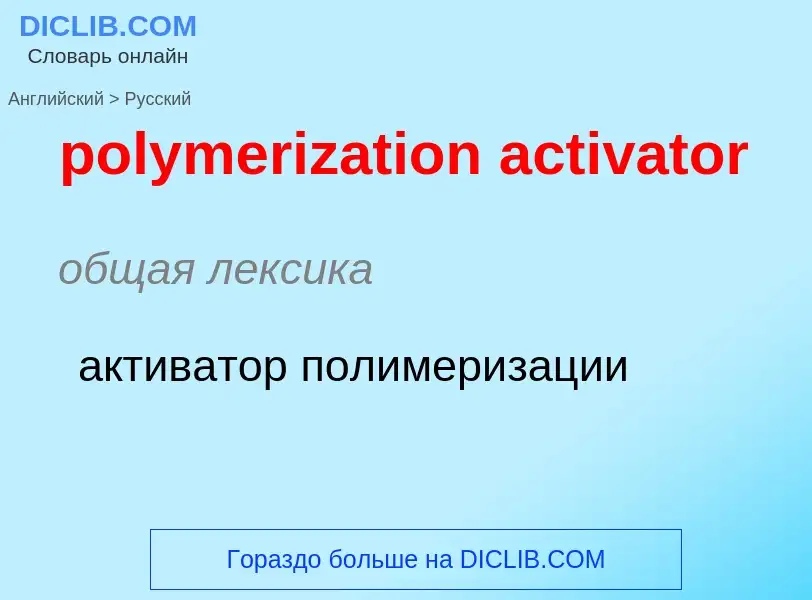Traducción y análisis de palabras por inteligencia artificial
En esta página puede obtener un análisis detallado de una palabra o frase, producido utilizando la mejor tecnología de inteligencia artificial hasta la fecha:
- cómo se usa la palabra
- frecuencia de uso
- se utiliza con más frecuencia en el habla oral o escrita
- opciones de traducción
- ejemplos de uso (varias frases con traducción)
- etimología
polymerization activator - traducción al ruso
общая лексика
активатор полимеризации
медицина
активатор плазминогена урокиназного типа
Definición
Wikipedia

Suspension polymerization is a heterogeneous radical polymerization process that uses mechanical agitation to mix a monomer or mixture of monomers in a liquid phase, such as water, while the monomers polymerize, forming spheres of polymer. The monomer droplets (size of the order 10-1000 μm) are suspended in the liquid phase. The individual monomer droplets can be considered as undergoing bulk polymerization. The liquid phase outside these droplets help in better conduction of heat and thus tempering the increase in temperature.
While choosing a liquid phase for suspension polymerization, low viscosity, high thermal conductivity and low-temperature variation of viscosity are generally preferred. The primary advantage of suspension polymerization over other types of polymerization is that a higher degree of polymerization can be achieved without monomer boil-off. During this process, there is often a possibility of these monomer droplets sticking to each other and causing creaming in the solution. To prevent this, the mixture is carefully stirred or a protective colloid is often added. One of the most common suspending agents is polyvinyl alcohol (PVA). Usually, the monomer conversion is completed unlike in bulk polymerization, and the initiator used in this is monomer-soluble.
This process is used in the production of many commercial resins, including polyvinyl chloride (PVC), a widely used plastic, styrene resins including polystyrene, expanded polystyrene, and high-impact polystyrene, as well as poly(styrene-acrylonitrile) and poly(methyl methacrylate).



